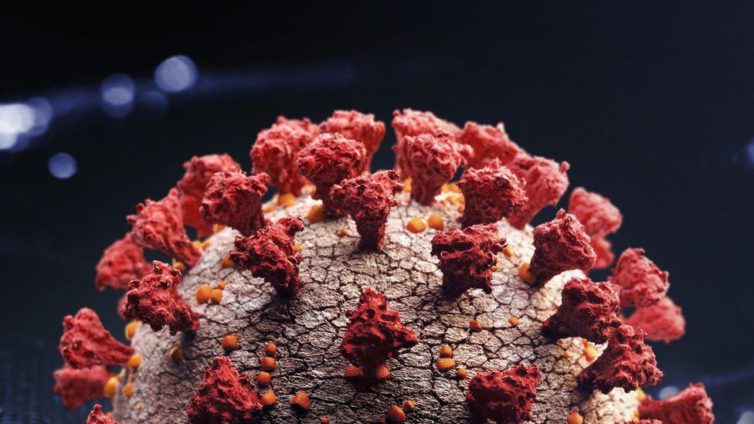
Audio By Carbonatix
Wolfgang Preiser, the virologist who first discovered omicron, has spoken to DW about the rapid rise in cases. He predicts that most people will catch the new variant.
The South African virologist, Wolfgang Preiser who first discovered the omicron variant of the coronavirus warned of its highly contagious nature in an interview with DW on Thursday.
"With this variant, it will be next to impossible to escape infection," Preiser told DW.
The virologist was "cautiously optimistic" about the sharp decline in case numbers now being seen in South Africa, one of the countries first hit by the new variant.
"Maybe omicron is a bit less virulent than the previous strains," Preiser said. "But we are still seeing patients dying from it," he warned.
'Impossible' to escape infection with omicron
The omicron variant was first registered in November and has since led to record-breaking numbers of infections in several European countries, including France where daily infections have recently surpassed 200,000.
While early reports on the variant have suggested it may have milder effects than other variants of the virus, scientists have warned that the surges in cases could easily overwhelm health services nevertheless.
"It's not a question of a common cold virus yet, it may be moving in that direction and that would be good news," Preiser explained.
"But the bad news is that with this variant it will be next to impossible to escape infection," he added.
"We have seen how fast it spreads and how fast the numbers rise," the virologist said, warning that many patients are asymptomatic and can still carry and pass on the disease.
"I would say that over the next few months, the majority of the population will get it," he told DW.
Following South Africa's example
The steep rise in cases in several European countries, as well as the US, is something that has already been seen in South Africa, Preiser said, however, this rise in cases has not been accompanied by an equivalent rise in hospitalizations.
"We were extremely worried that over the festive period because it started in late November here, we would then have record numbers of severe cases being admitted to hospital," Preiser told DW.
"And very fortunately our infection numbers have peaked so we are now in a clear downward trend," he added. "And luckily our hospitalization rate has been lagging behind significantly, so we've seen far fewer severe cases."
However, he went on to point out that most people in South Africa have had the virus at some point over the past two years and may have antibodies already.
Latest Stories
-
Trump-backed candidate Nasry Asfura wins in knife-edge Honduran election
2 hours -
Kyrgios set to make ATP Tour return at Brisbane
4 hours -
‘Always hungry, always brave’ – why Man City want Semenyo
5 hours -
Cameroon open AFCON with win after Etta Eyong’s strike
5 hours -
Mahrez scores twice as Algeria beat 10-man Sudan
5 hours -
Imperial General Assurance supports Ashanti School for the Deaf Girls with menstrual hygiene products
5 hours -
Roverman Productions welcomes one and all to the Festival of Plays!
5 hours -
GTA marks a century of highlife with grand launch of Highlife @ 100
5 hours -
Star Dancers crowned winners of Season II of Kumawood TV Star Kids Show
6 hours -
Amad Diallo gives AFCON holders Ivory Coast win over Mozambique
6 hours -
UK social media campaigners among five denied US visas
6 hours -
BP sells stake in motor oil arm Castrol for $6bn
6 hours -
GPL 2025/26: Asante Kotoko beat Eleven Wonders to go third
8 hours -
Algerian law declares France’s colonisation a crime
9 hours -
Soldiers remove rival Mamprusi Chief Seidu Abagre from Bawku following Otumfuo mediation
9 hours

